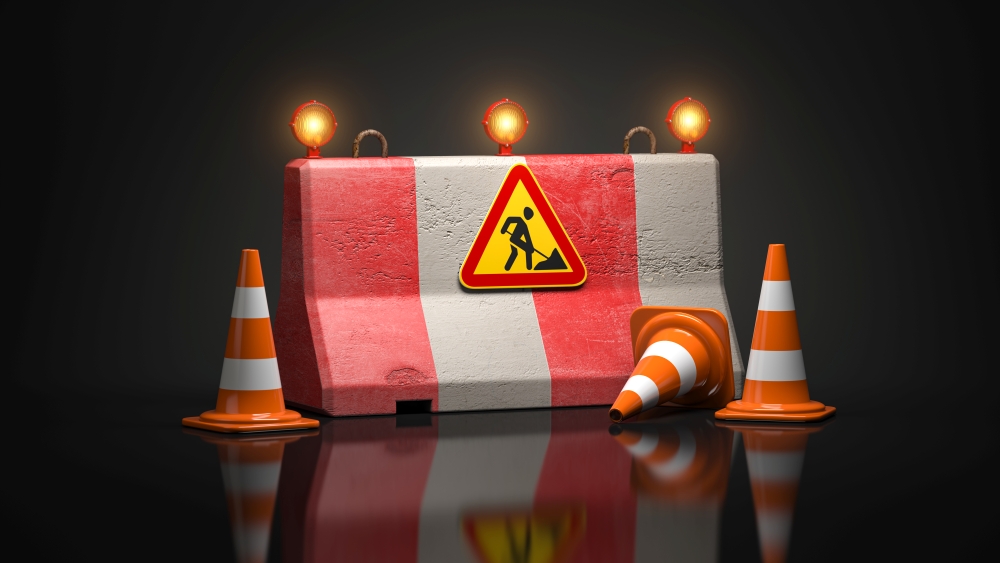New Research Points to Many Successful Collaborations to Combat Human Trafficking
More work to do: Survivors recall human traffickers moving them through transportation systems.
Transportation workers are watching for signs of human trafficking and are ready to assist law enforcement and social service organizations, according to a report released today by United Against Slavery National Outreach Survey for Transportation (NOST), 2021. The American Bus Association is one of the organization’s Oversight Agencies and remains committed to promoting awareness of this violation of human rights. The association has partnered with Truckers Against Trafficking’s program Busing on the Lookout as well as government agencies to provide resources to companies. Additionally, ABA member Coach USA/Megabus helps human trafficking victims by providing free tickets to help victims travel to another city along a Megabus route to reunify with the family, access special services, or participate in the prosecution of their trafficker.
United Against Slavery conducted this comprehensive research project to help identify what is and is not working on the frontlines of counter-trafficking work in transportation. The data documents the experiences, challenges, and recommendations for improvement from frontline workers and those with lived experience. Collaboration was a key feature of the NOST study, which involved 54 organizations that distributed the survey across more than 150 job positions in the transportation sector. The NOST had 3,896 survey respondents and was survivor- and trauma-informed by Lived Experience Experts and a Survivor Leaders Advisory Council. Respondents include transportation workers, law enforcement, victim service providers, and sex and labor trafficking survivors, all of whom shared new insights to improve anti-trafficking work.
NOST data confirms that the transportation workforce is not only safety-oriented but also able and willing to support travelers who may be trafficking victims, as noted by 85% of 3,139 respondents indicating they would like to be trained on how to identify human trafficking victims. Current awareness of human trafficking stems from many local and national collaborations for more than a decade to train workers on reporting trafficking. New laws further these efforts, including the Human Trafficking Prevention Act of 2022, which enables collaborative efforts in the transportation sector to post the national human trafficking hotline in restrooms in transportation facilities.
A variety of transportation modes were utilized in the initial recruitment of victims and repeated trafficking operations. Out of 107 survivors who participated in the NOST, 81% said that transportation was used in their recruitment, 76% during their exploitation, and 52% during their extraction/escape. A lack of transportation was also reported by 23% of 145 survivors, preventing a potential exit from their human trafficking situation. When survivors were asked if anyone in transportation stopped to ask if they were ok or needed help, 15% of 155 survivors said once, and 10% said more than once.
“The workforce in every mode of transportation has a role to participate and get involved,” said Christi Wigle, CEO and Co-Founder of United Against Slavery. “Survey results confirm that a strong level of commitment exists already in the transportation sector. The survey response rate underscores the dedicated work by the USDOT Transportation Leaders Against Human Trafficking program, DOT-DHS’s Blue Lightning Initiative, and many other organizations. The NOST data also points to how we can deepen engagement and broaden the range of tools the transportation sector can use to assist law enforcement and victim service providers.”
Key findings include:
- Nearly one-third of 2,792 respondents reported mandatory human trafficking training at their place of employment, while 23% were unsure.
- 85% of 3,870 respondents have never reported signs of human trafficking. This includes 62% of 341 law enforcement, 87% of 2,002 aviation workers, 92% of 266 transit workers, 97% of 935 roadway workers, and 47% of the remaining 326 respondents.
- 60% of 923 transportation workers stated that their agency has an established protocol for reporting suspected human trafficking.
- Among 3,551 respondents, 48% indicated they had concerns about misidentifying signs of human trafficking.
- During their exploitation, 65% of 158 survivors never saw a hotline number posted. In particular, 32% of 95 trafficking survivors never saw human trafficking awareness information in a restroom, and 23% said they rarely saw such information as they moved from location to location.
- 60% of 44 victim service providers say obtaining transportation services for their clients is difficult.
Findings from the NOST will provide new frontline insights into the intersection of human trafficking and transportation. Recurring NOST studies every three years will also help measure benchmarks, identify challenges, and recommend improvements. The NOST also created a framework that allows United Against Slavery to replicate similar frontline studies in other industry sectors.
Ms. Wigle noted, “January 31st is the last day of National Slavery and Human Trafficking Prevention Month, plus a very important date in history. Congress passed the 13th Amendment to prohibit slavery on January 31, 1865, but ratification occurred in December of that year. It is another reminder that for all the progress anti-trafficking efforts have achieved thus far, there is still more work to be accomplished each month of the year. We hope the NOST findings will become one more tool to help improve counter-trafficking efforts so that victims and survivors can exit their abuse and have their own freedom and autonomy, including access to their own transportation.”
About United Against Slavery
United Against Slavery developed the National Outreach Survey (NOS) as a critical new tool to help advance anti-trafficking work by focusing on comprehensive frontline data collection and dissemination. Each NOS focuses on data collection among industry sectors potentially exposed to human trafficking indicators, those working with survivors, and those directly impacted by this heinous crime. Please access the NOST report and findings here. More information about United Against Slavery can be found at unitedagainstslavery.org.
